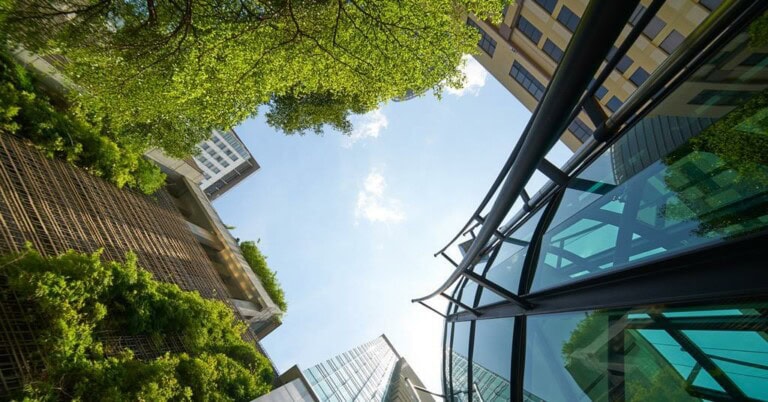An Introduction to Climate Change and Carbon Reduction in the Built Environment

The built environment currently contributes around 40% of annual CO2 emissions globally. Therefore, improving the sustainability of the built environment is imperative if we are to stay within a 1.5 degree world.
On this four-week course, you’ll be introduced to climate change and low carbon design in the built environment, and the different approaches to reduce carbon in buildings globally.
By the end, you’ll feel equipped to advocate for low carbon building design and delivery, and be able to apply your knowledge to your work, community, or home.
Unpack climate resilience and risks
You’ll start by exploring why carbon and other greenhouse gases play a central role in climate change, and how the built environment either exacerbates or mitigates this issue.
Next, you’ll delve into the key concepts relating to carbon and climate change such as net zero carbon buildings, energy performance, climate risks, and resilience.
Delve into sustainable buildings
You’ll unpack a variety of case studies investigating low carbon buildings. Armed with this knowledge, you’ll be able to implement best practices in your own work.
Next, you’ll receive guidance on how you can take action by investigating the unique role you play in reducing carbon in the built environment.
Why join?
By the end of the course, you‘ll be able to…
- Investigate key concepts and examples of carbon reduction in the built environment
- Compare practices and techniques to reduce carbon in buildings globally
- Apply your knowledge to your work, community or home
- Develop a plan to positively influence low-carbon outcomes within your own built environment
- Collaborate with other learners as part of your new-found future learn community
Who should join?
This course is designed for anyone interested in a low carbon future and how the built environment might contribute to this.
You may be working in the built environment, have existing knowledge on climate change, or you’re simply interested in growing your knowledge in this field.
Course format
This course, hosted on the FutureLearn platform, is split into four weeks of activities, and steps to help you keep track of your learning. Learnings are deployed through a mix of bite-sized videos, long- and short-form articles, audio and practical activities.
Who is this event for?
Interest in climate change mitigation
Get involved
Related
How to Procure Renewable Energy in the Built Environment

Carbon Offsetting and Pricing Masterclass – London

Carbon Offsetting and Pricing Masterclass – online


